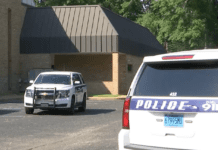To be a believer, in any classical sense, is to give oneself over, at least at times, to the notion that reality cannot be fully defined or appreciated in strictly rational ways. To be faith-filled is to be animated by beliefs that, though not provable, bring us and our world to what we believe will be a better place.
As discomforting as it may be, this is precisely what these QAnon believers are doing. The fact that they operate that way at church or in private belief makes it all the more “reasonable” that they will do so with QAnon.
For some, this is a good argument for the dangers of religious belief in general and for pushing for increased secularization. Not for me.
As a believer, I appreciate the beauty and power of belief. I appreciate all of the ways that belief helps us to transcend the moment in which we find ourselves and reach for that which is better, higher, unreasonably aspirational, irrationally compassionate and loving beyond understanding.
I would hope that the non-faith-filled could also appreciate how faith fuels all those things, even if it is not their chosen path, if only because faith has done that for millions of people for thousands of years. To give up on that path because of the abuses committed in its name would be like giving up central heating and cooked food because furnaces and cooking fires sometimes burn down people’s homes.
More practically, secularization or rationality has little chance of correcting or convincing QAnon believers. Without embracing how faith works in the lives of the faith-filled, it will be virtually impossible to stop its abuse when it occurs. The beliefs of QAnon followers are decidedly irrational, and no rational arguments will address them. It’s simply a case, as they say in Maine, of “you can’t get there from here.”
So, unless we are prepared to use physical force — and there are times when “calling the police or National Guard” are clearly called for — we have to meet the QAnon faith-filled where they are. We need to use faith-informed, if not faith-filled, arguments in order to do that.
Just as rational questions invite rational answers, faith-filled beliefs invite faith-appreciating responses. As hard as it may be to practice what I am preaching here, our ability to do so may be the single most important tool we have to keep things safe and sane for both the rational and the spiritual in a world too often bitterly and dangerously divided between the religious and the secular.
Such an approach would start by affirming our appreciation of the positive power of faith and admit that there is more to life than what we can now rationally explain. We should act with genuine curiosity, asking QAnon believers what they think we least understand about their lives and views. We need to stop asking them to justify their conclusions and help us better understand the transcendent questions they feel their beliefs answer.
If it helps, view it from the other end: Imagine what would happen if you explained to a nonbeliever that their questions about everything, from how the world came into existence to why children die of cancer, is “it’s all God’s will” and expected them to take comfort in your answer.
This article originally appeared here.











